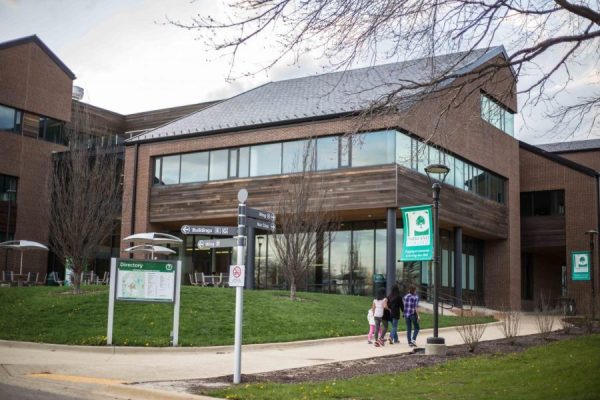Role-playing group updates perceptions of ‘gaming’
Sep 12, 2011
Amid house parties and sorority rush rituals, the Illini Roleplaying Network, an RSO comprised of self-identified “gamers,” meets on Saturday nights inside the dim halls of the English Building. Spread out among several tables in the building’s atrium, the members of IRN share their love of board and roleplaying games.
These members represent how the concept of “gamer” is being redefined and expanded to include a larger group of individuals with more diverse interests.
Saturday night gatherings tend to consist of adventure-themed board games such as Risk or Dungeons and Dragons.
Other nights the IRN breaks into smaller groups that participate in live action role-play (LARP) where groups wear costumes and physically act out their characters in a particular game setting.
“Unlike our weekly game night, the LARP games are more extensive and take place over a semester or a year,” said William Mansky, graduate student in Engineering and treasurer of IRN. “The groups go over what kinds of characters they want to play, take time to establish their characters’ identities and then more to the improvisational acting portion.”
Get The Daily Illini in your inbox!
The term “gamer” originated with the introduction of role-playing or wargames in the 1970s. Creators of these games sought to give participants a collaborative, story telling experience.
While Dungeons and Dragons was the first commercial roleplaying game released in 1974, many other similar ones have developed.
Some are tabletop roleplaying games that take place in a more controlled setting. A GM or Gamemaster picks the setting and lists the rules of the game. Participants then either discuss their characters’ attributes or draw cards with information about their actions.
LARP and digital roleplaying games soon followed their tabletop counterparts. These, combined with the introduction of video games into mainstream society, have influenced the growth and diversity among gaming consumers.
Scott Matthews, senior in Engineering and president of the Social Gamers RSO, strives to make gaming more than just a single person activity. Along with meeting on weekends to play a variety of board and console games, the Social Gamers also spend time getting to know one another in other ways such as going out to eat or playing laser tag.
Despite the various studies that have been conducted through the years to analyze the effects of video gaming, Matthews said he finds it to be “challenging and mentally stimulating” and believes that in moderation, gaming can be just like any other social activity.
Early video games were geared more toward small niche groups or younger demographics.
They now comprise a multi-billion dollar industry that amounted to approximately $18.6 billion in 2010 according to the NDP group, a consumer market research firm.
Among the top-selling games in recent years are first-person shooter games, platform games such as Super Mario Brothers, as well as professional and college sporting games.
Nick Cragoe, a self-identified gamer and sociology TA, sees the mainstream popularity of games as a contributing factor to the shifting definition.
“Though I don’t have an extensive knowledge about sociological studies of video games, I would have to say that gaming hasn’t completely lost the geeky stigma, but the concept seems to be changing,” Cragoe said. “Before there would seem to be a distinct categorization of geeks versus jocks. Today, however, because of the wide array of games available, a lot of jocks have become the gamers.”





